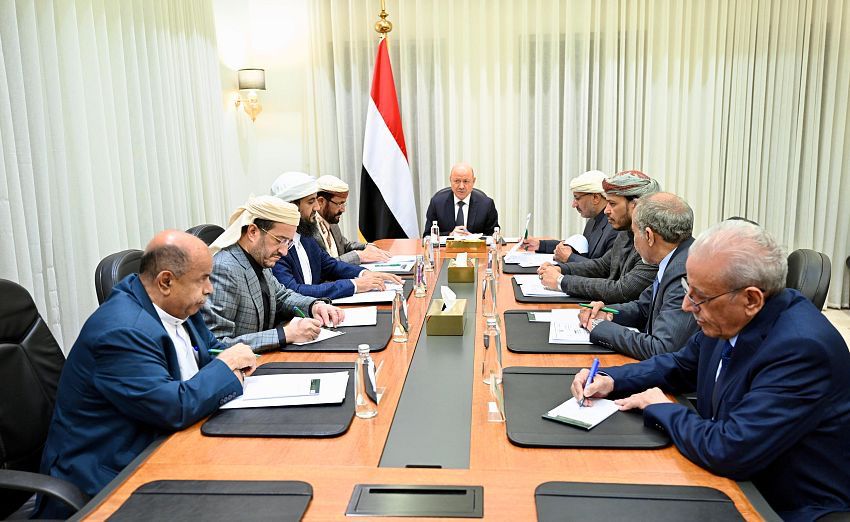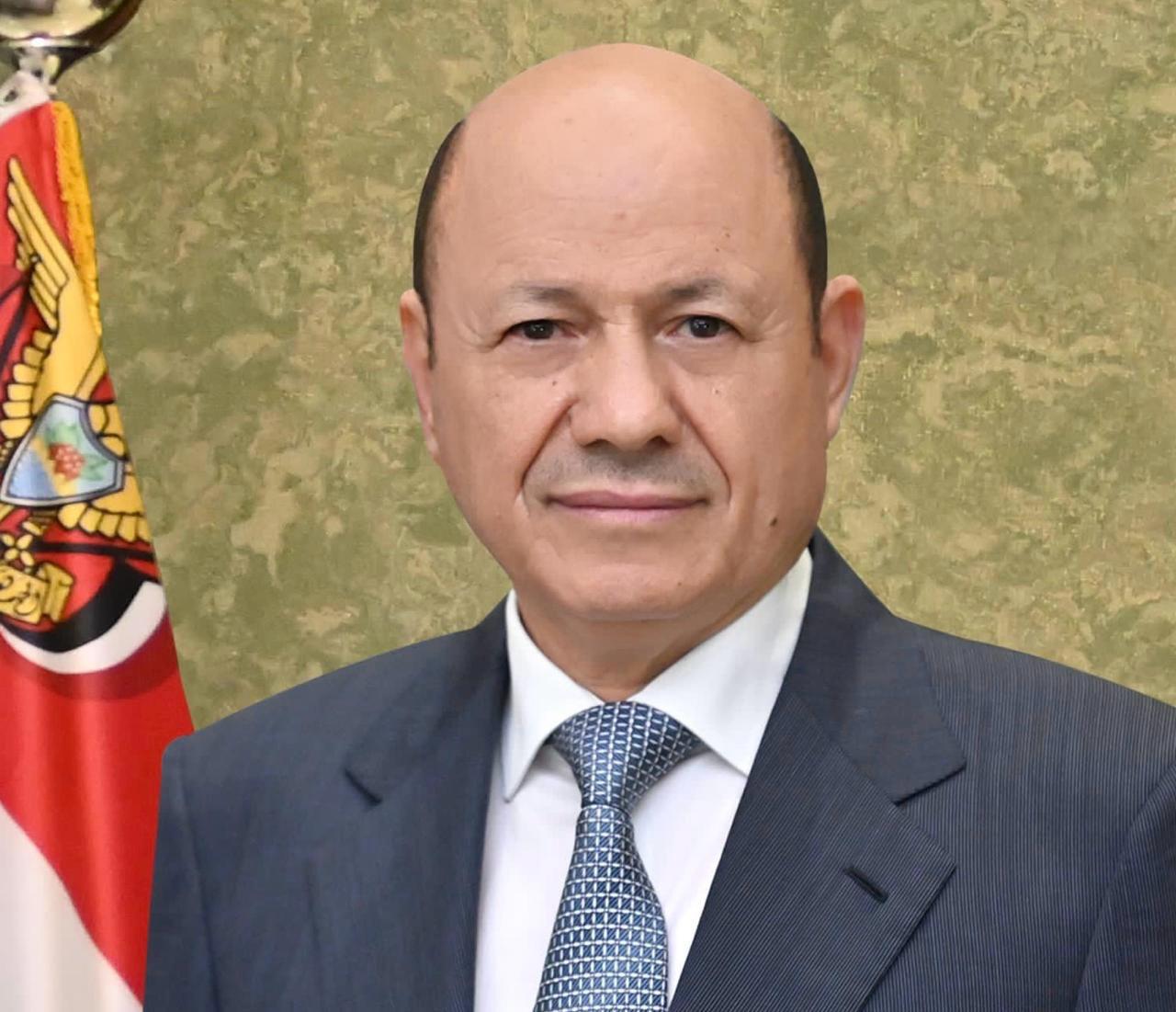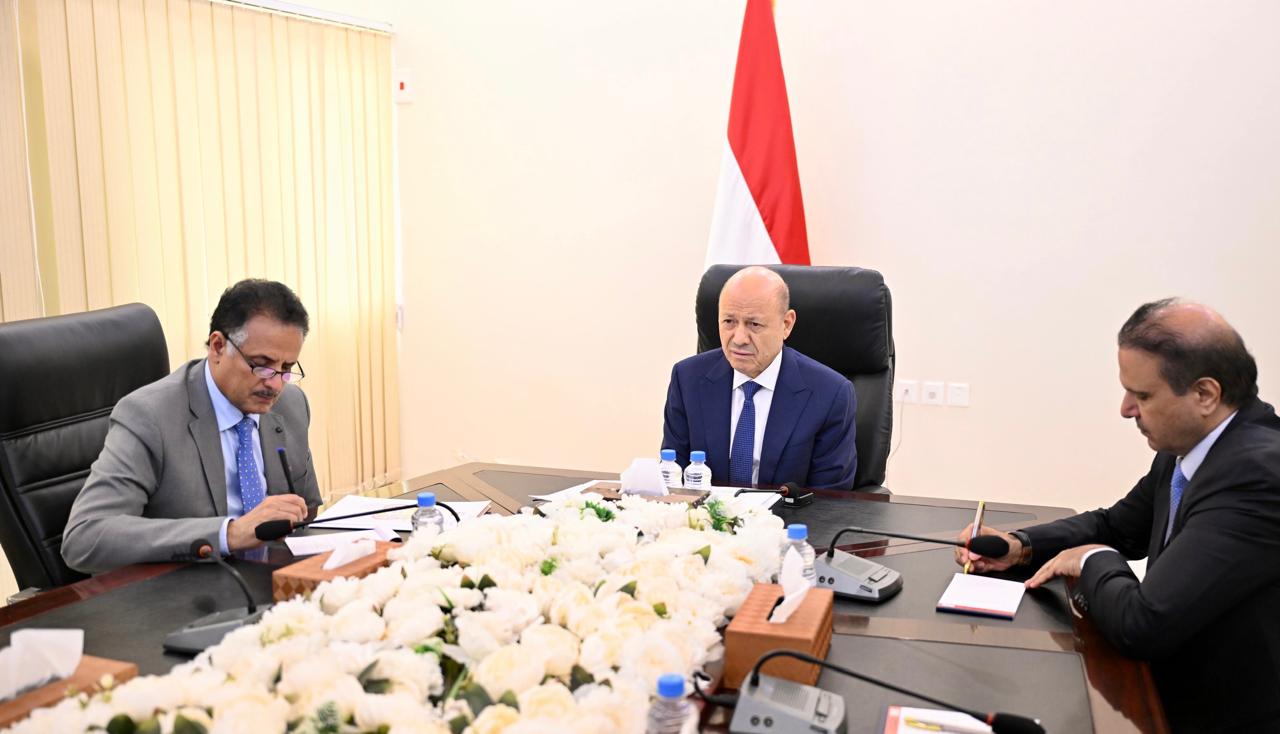
President Al-Alimi Meets with Leaders of National Bloc of Political Parties and Components
Aden
His Excellency President Dr. Rashad Mohammed Al-Alimi, President of the Presidential Leadership Council, met on Monday with the leadership of the Supreme Council of the National Alliance of Political Parties and Components, headed by Dr. Ahmed Obeid bin Daghr, Chairman of the Shura Council. The meeting was held as part of ongoing presidential consultations regarding recent domestic developments and the role of national forces in addressing existential challenges at all levels.
His Excellency the President praised the role of political parties and components in defending the state – building project and the republican system, as well as in providing advice and mobilizing resources to alleviate suffering and overthrow the coup of the Iran- backed terrorist Houthi militias.
His Excellency emphasized that these periodic meetings serve not as a platform for propaganda, but as an essential necessity dictated by the demands of partnership, the complexities of Yemen's political, economic, and military landscape, and the high-stakes challenges facing the nation's future.
He affirmed that: “the participation of national forces in addressing this phase's developments and interconnected challenges will remain a firm presidential commitment—required by both the imperatives of national partnership and the transitional goals outlined in the Power Transfer Declaration and its relevant references.”
He added: "We are facing one of the most complex phases in the contemporary history of the Yemeni state. Overcoming these challenges would not have been possible without the resilience of the Yemeni people, the support of our brothers in the Saudi-led Coalition to Support Legitimacy in Yemen—particularly the Kingdom of Saudi Arabia and the United Arab Emirates—as well as the appreciated interventions of our regional and international partners."
In this context, President Al- Alimi emphasized the importance of accurately diagnosing the causes of the current financial crisis, which is linked to the halt in oil exports due to terrorist attacks by the Houthi militia. These attacks were deliberately orchestrated to undermine the momentum of the republican alliance and plunge the country into a comprehensive humanitarian crisis.
His Excellency the President addressed the repercussions of these terrorist attacks and their impact on the government's efforts to meet its essential obligations, foremost among them the payment of employee salaries and the provision of basic services.
President Al-Alimi affirmed that the Leadership Council will always be transparent about these challenges, saying:
“We cannot afford to ignore them. Instead, we must work closely with the government to transform these challenges into opportunities toward self-reliance.”
The President of the Presidential Leadership Council highlighted several key achievements under the Council's mandate per the Power Transfer Declaration, most notably its unity and cohesiveness around shared objectives and common adversaries. He noted that despite occasional differences, all Council components compete to lead the fight against terrorist militias—a testament to this unique experiment in consensus-building that must be nurtured rather than undermined through skepticism.
His Excellency reaffirmed the Council and government's commitment to maintaining open channels with all political forces, emphasizing that the state views political parties not as spectators but as partners who share responsibility.
The President further detailed security successes, including exposing a terrorist network led by Amjad Khaled—an achievement serving not just as a security milestone but as a wake-up call for all legitimate entities.
"We now face overt collusion between Houthi militias and terrorist organizations," he warned, "manifested in assassinations, bombings, drug trafficking, organized crime, and plots to overthrow governorates from within."
He added: “We place great reliance on political parties in this battle because we believe there is no security without responsible authorities and no cohesive internal front without parties bold enough to call things by their names. Either we stand together in the same trench, or we abandon our responsibilities and leave people vulnerable to terrorism, deception, and despair.”
The President stressed the role and national responsibility of parties in shaping public opinion against the militias, cooperating with the government to face challenges, and monitoring performance to achieve reform—not merely to find faults.
During the meeting, the Council was briefed by the National Bloc leadership on their vision for national alignment, observations on executive performance, and proposals to enhance coordination and decision-making inclusivity. Discussions also addressed urgent interventions: resource control, optimized foreign aid utilization, monetary policy stabilization, and sectoral reforms—particularly in electricity and water services.
Alliance leaders renewed their commitment to safeguarding achievements, supporting state institution restoration, ending the coup, and alleviating suffering caused by Iran-backed Houthi militias.
The meeting was attended by Major General Saleh Al-Maqaleh, Director of the Presidential Office.
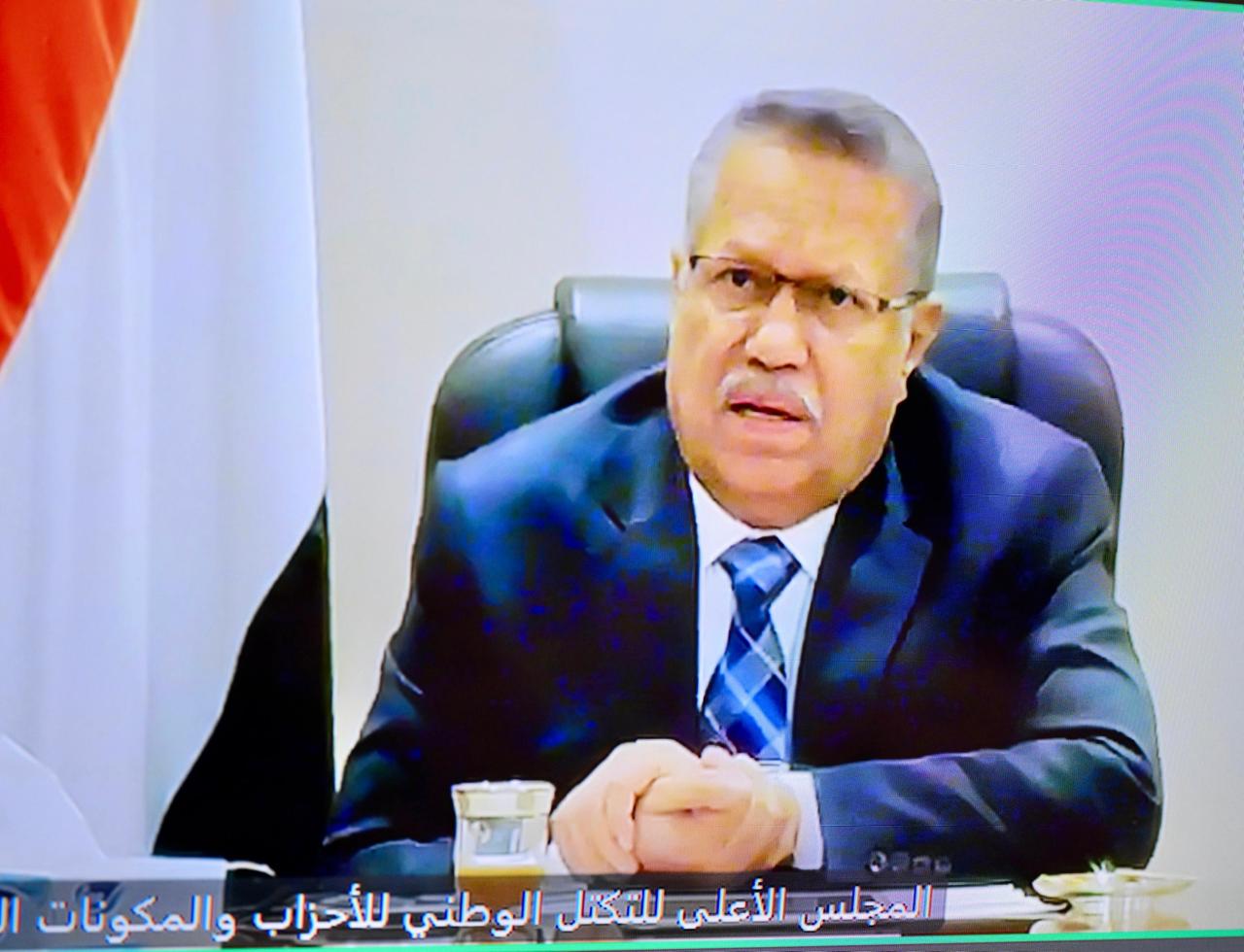
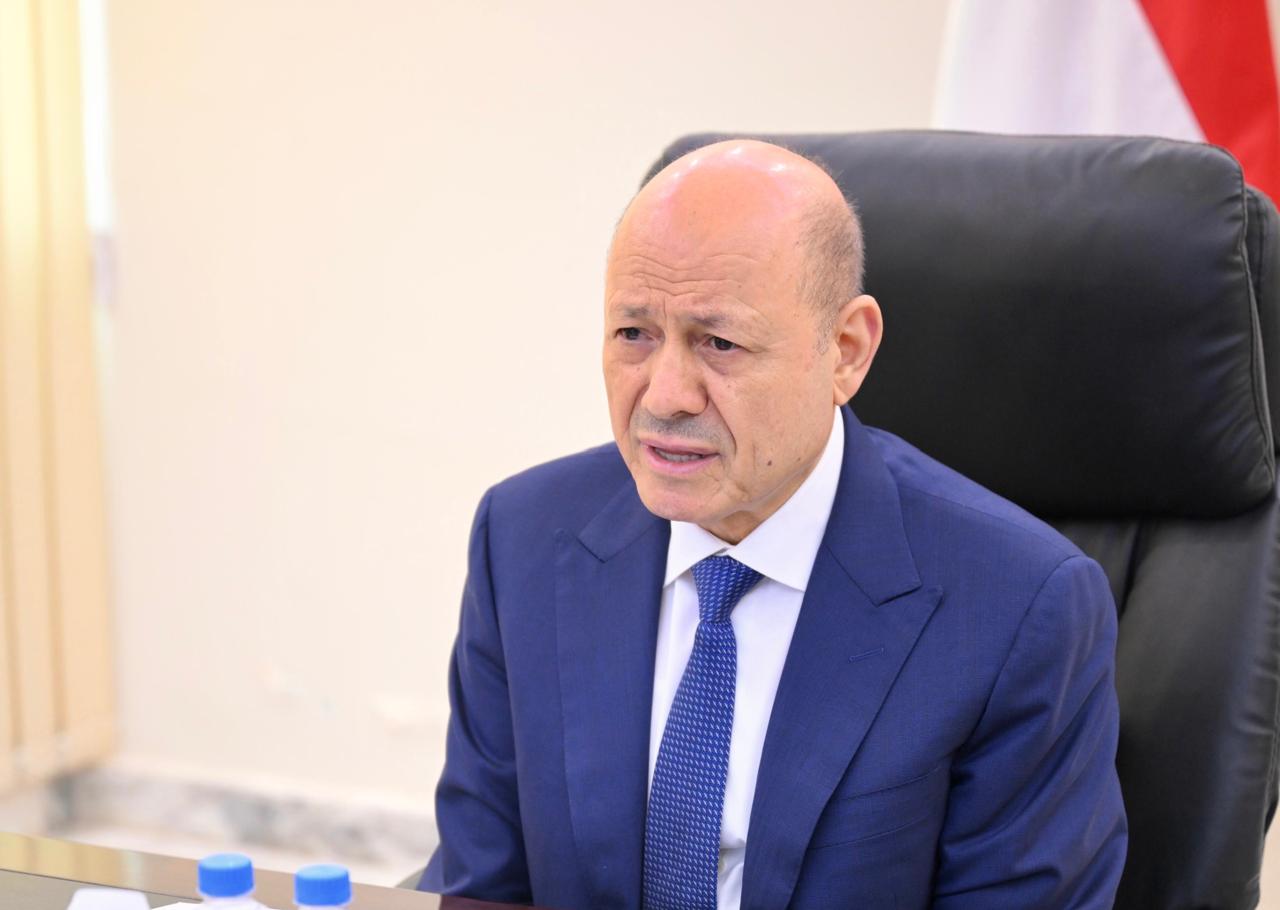
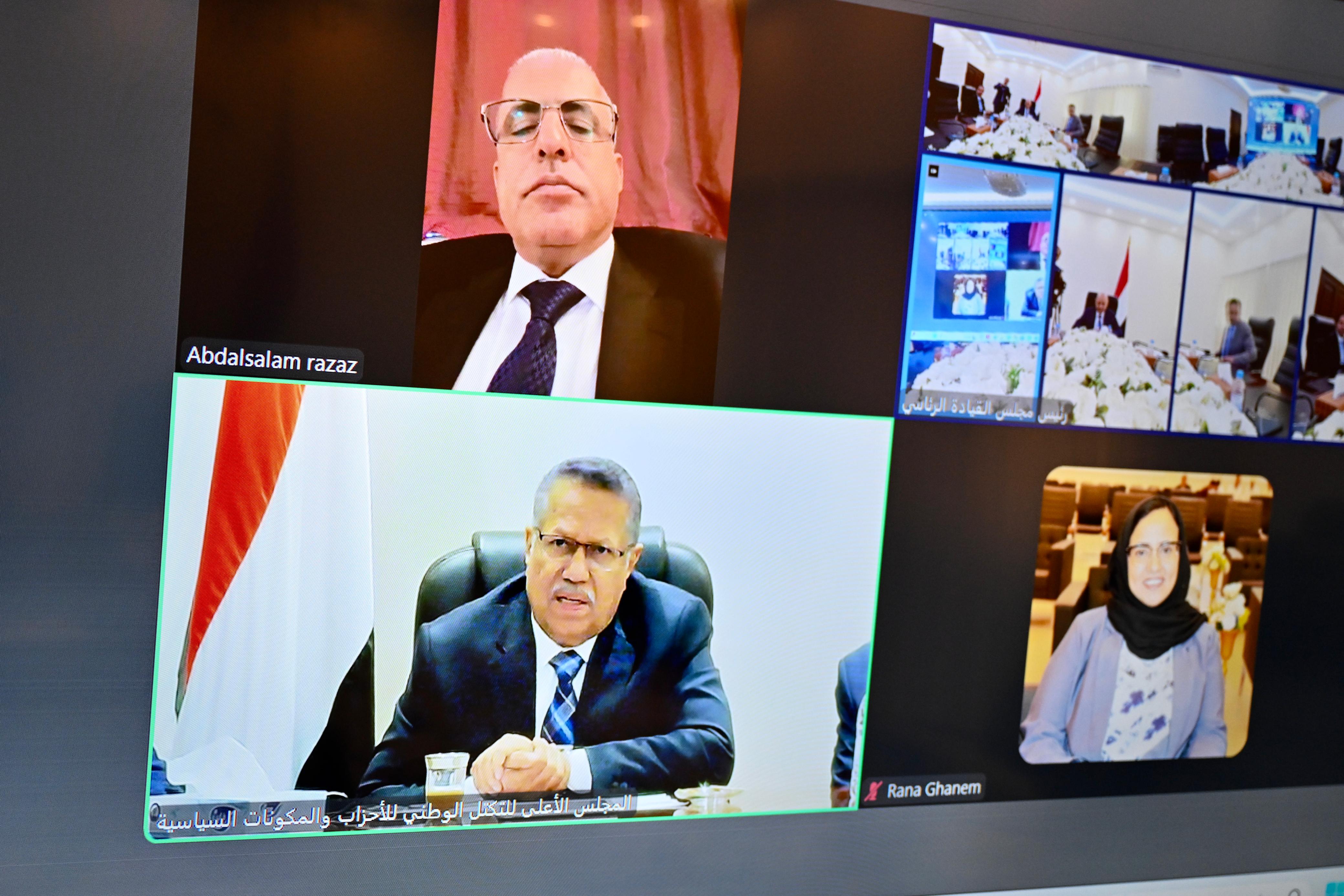
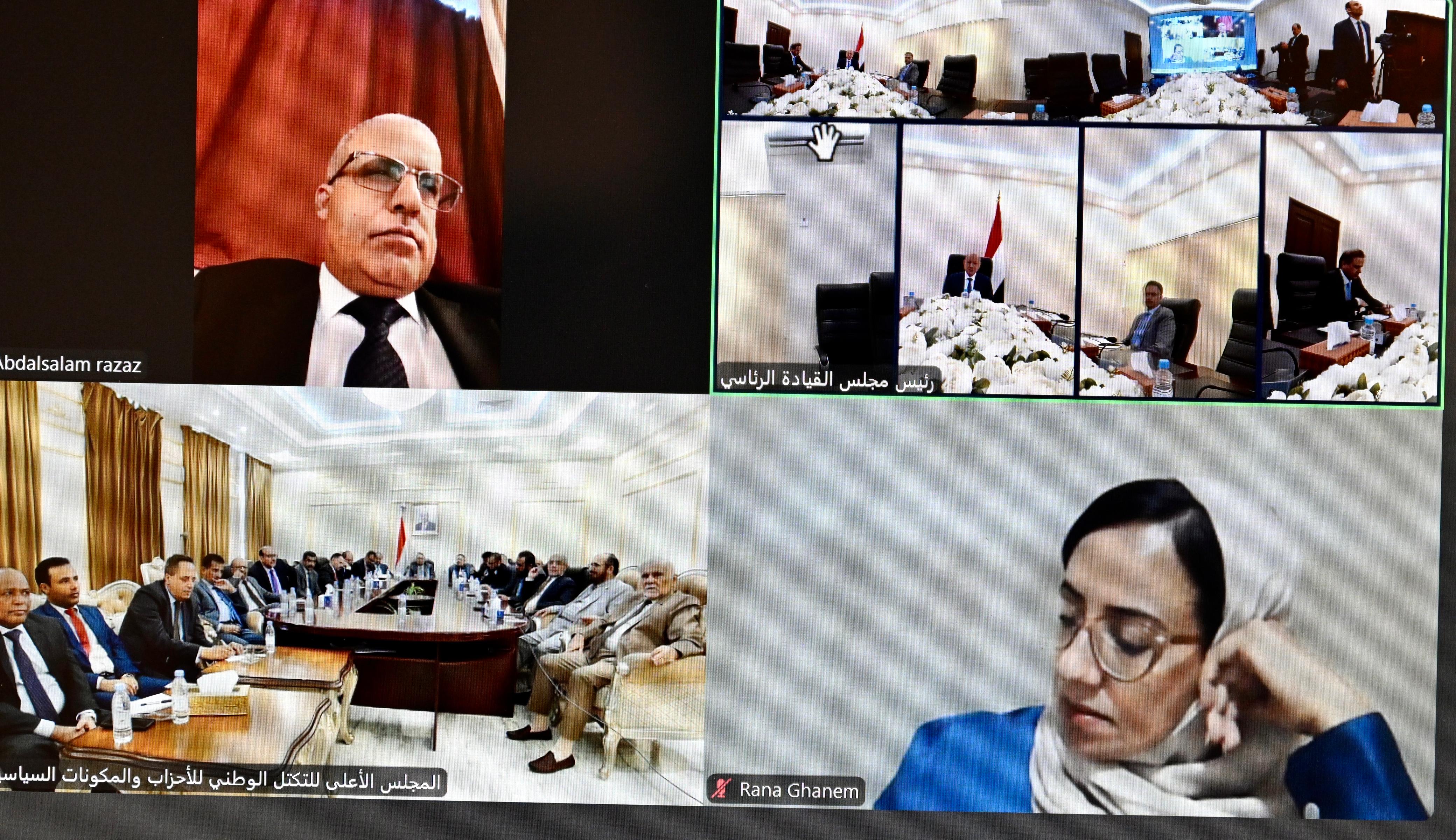
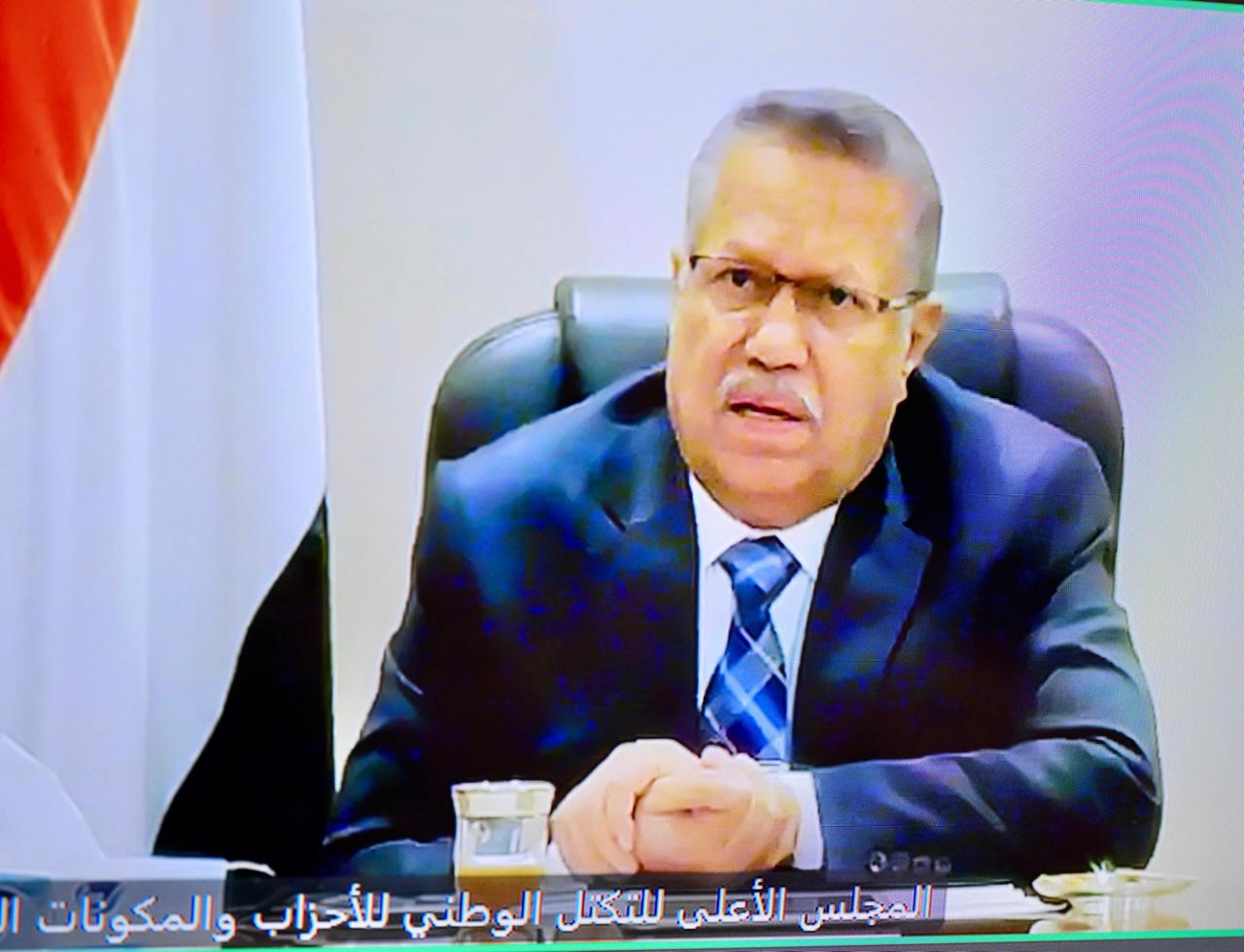
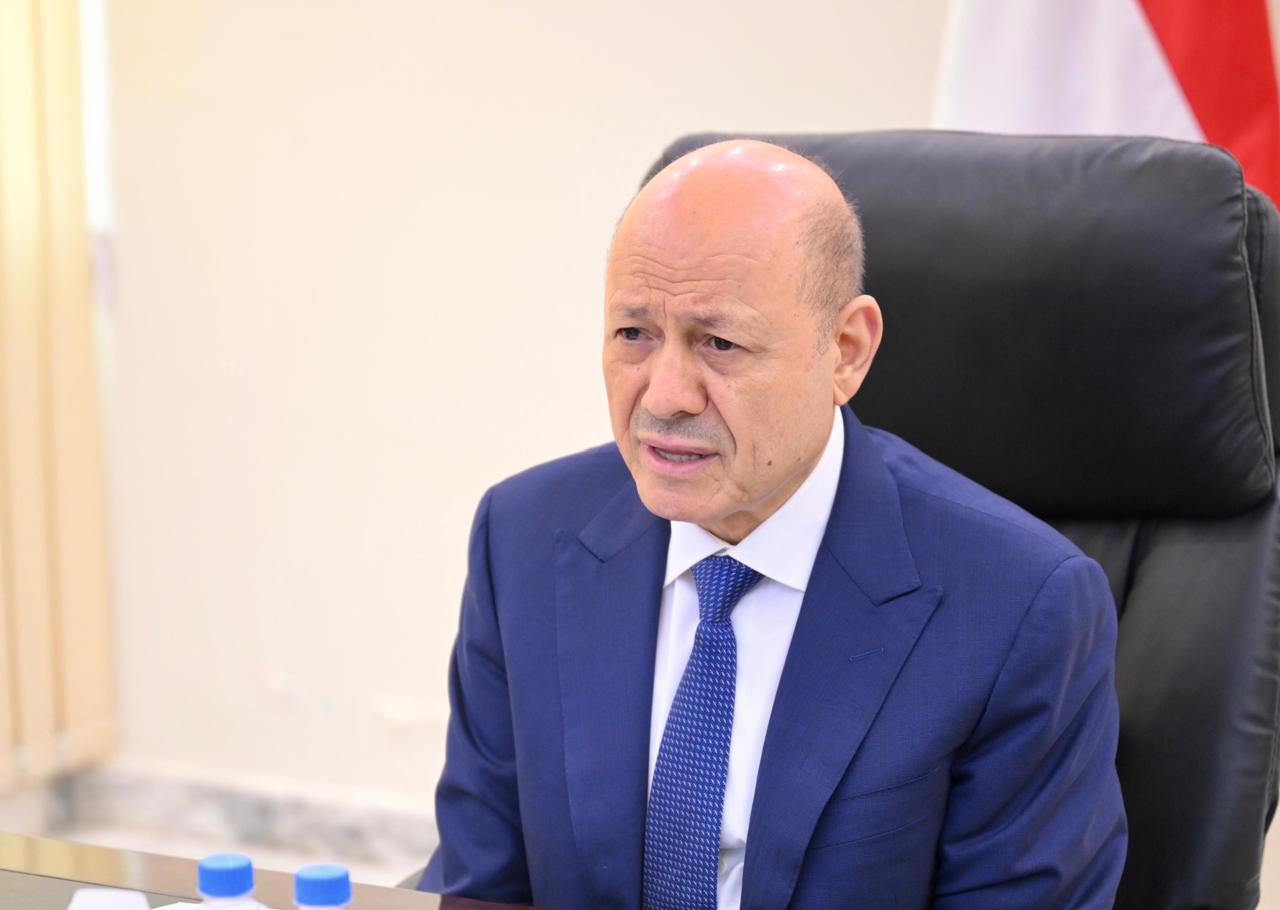
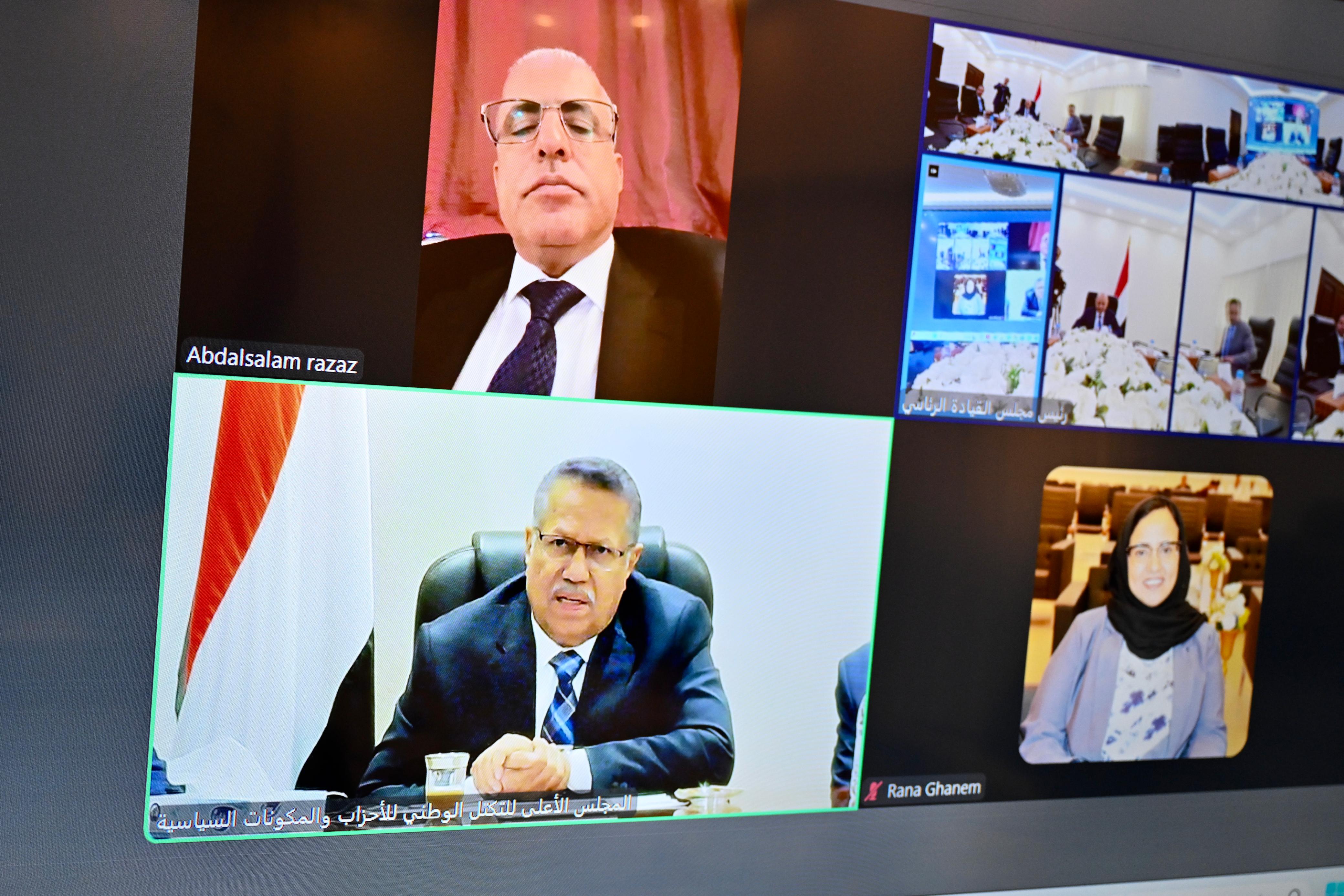
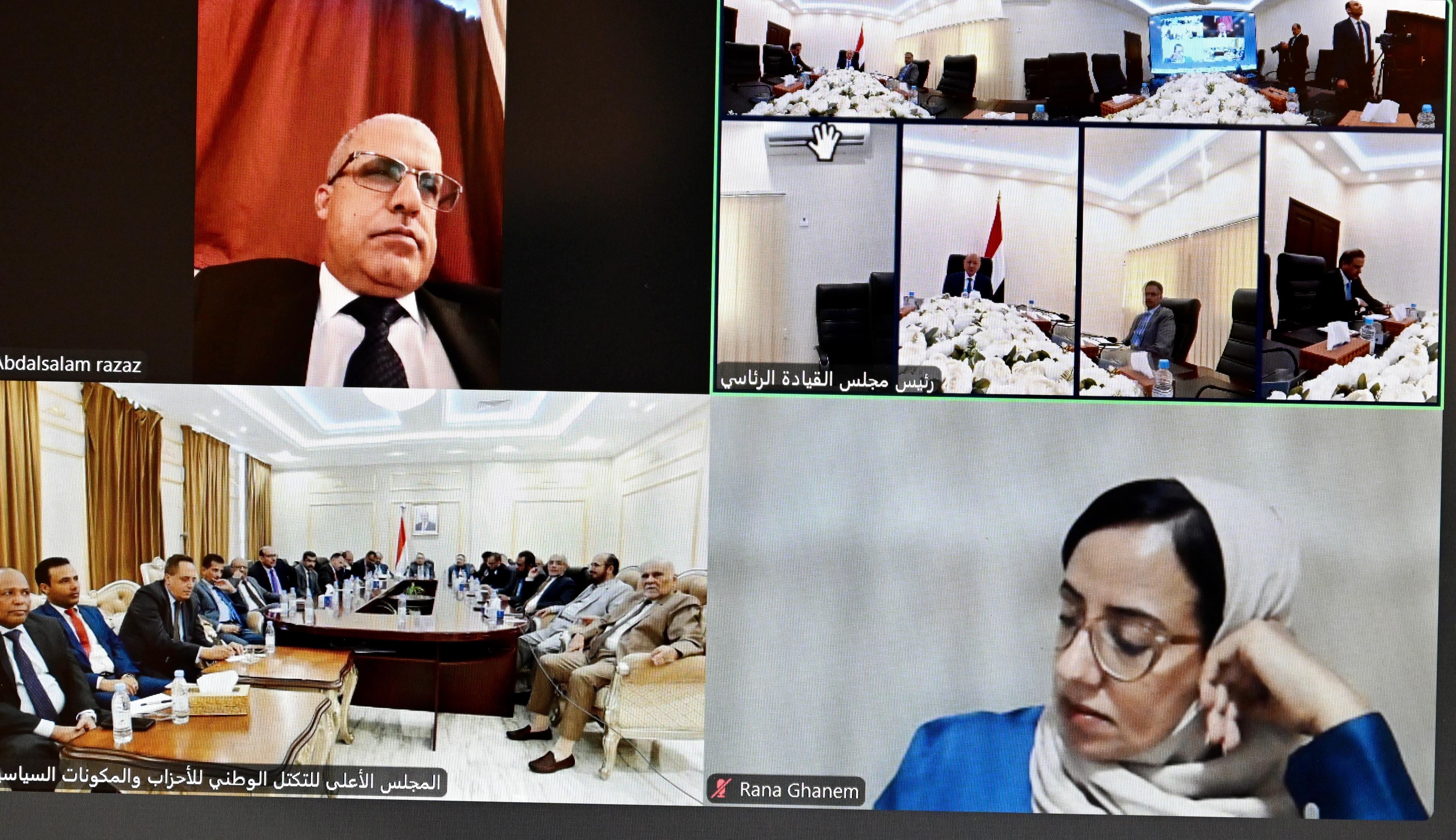
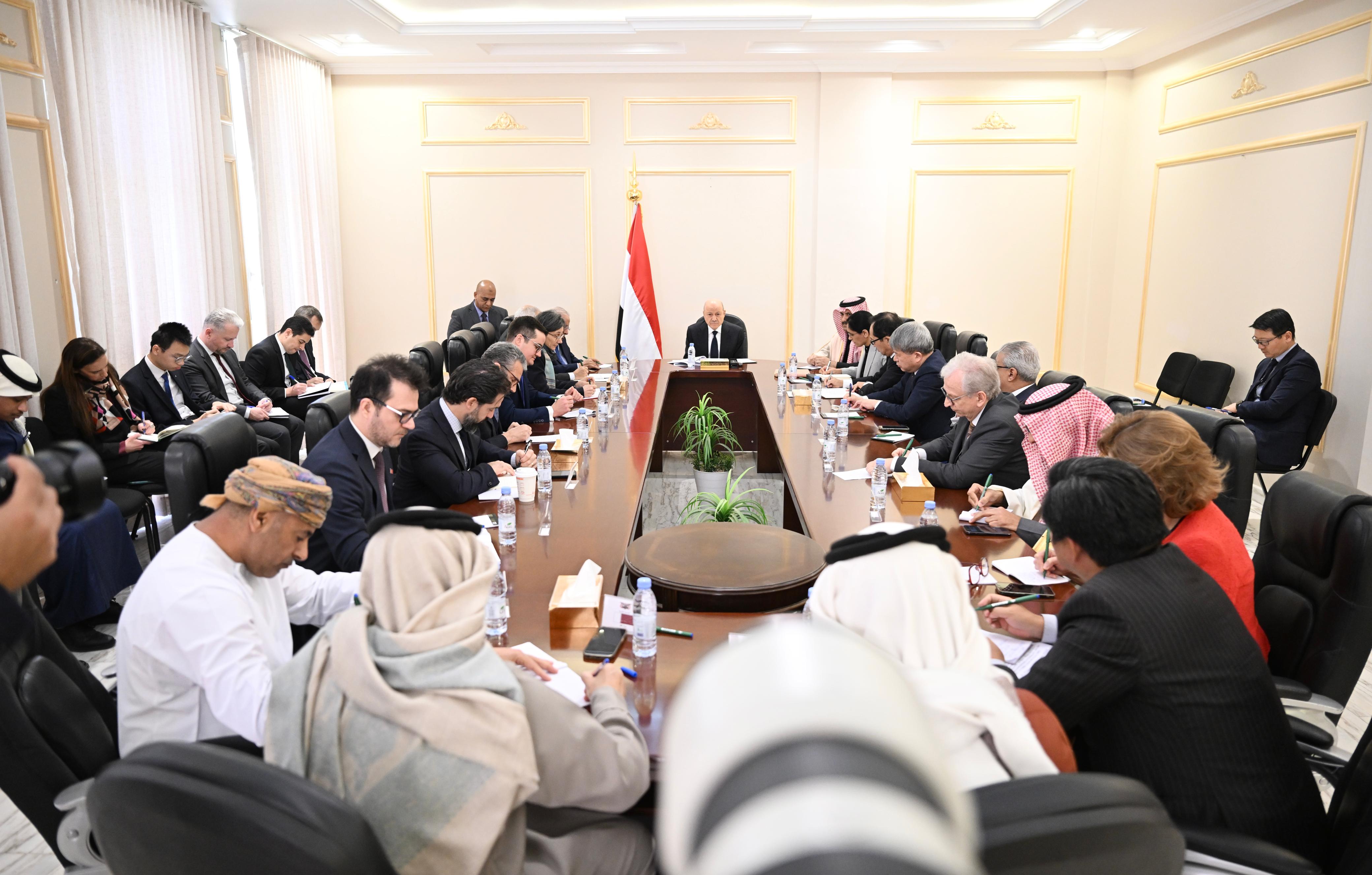
President Al-Alimi: Developments on Ground Are Promising and Refute Claims of a Vacuum and Worst-Case Scenarios
His Excellency President Dr. Rashad Mohammed Al-Alimi, President of the Presidential Leadership Council, said that state institutions are making tangible progress in unifying security and military decision-making

